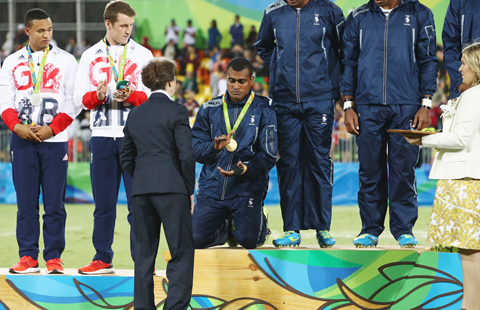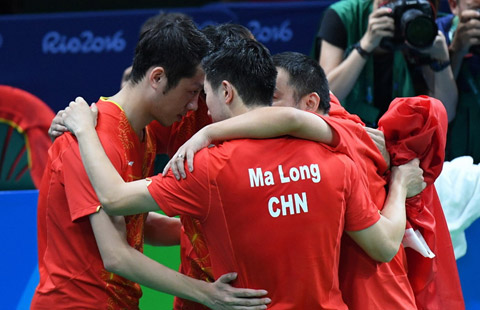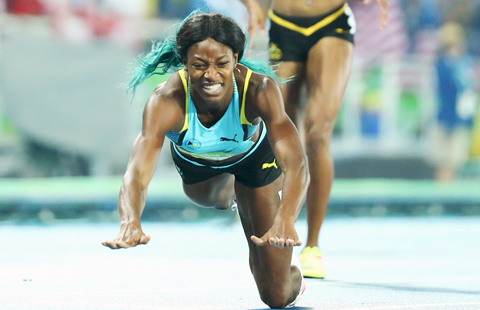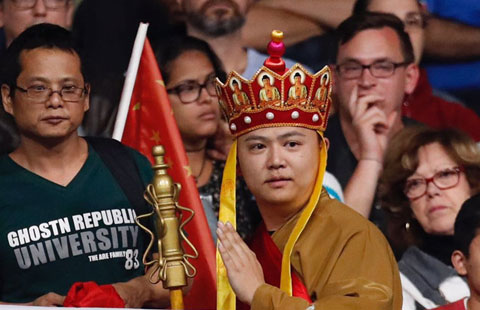China has 2020 vision
By Xinhua (China Daily) Updated: 2016-08-19 07:54Table tennis brain trust already plotting how to maintain nation's superiority at Tokyo Games
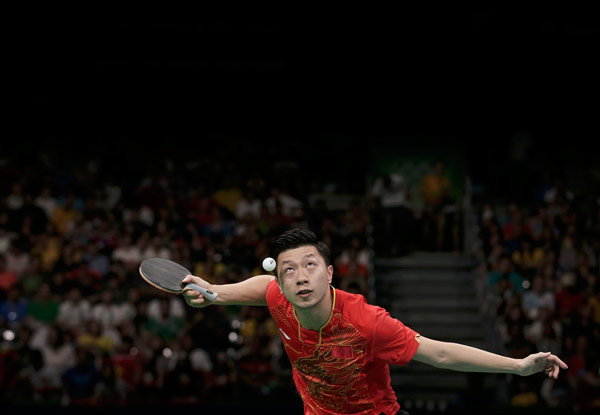 |
|
Ma Long is one of the stalwarts of China's table tennis dynasty. The world's No 1 male player won two singles against Japan en route to the gold medal in Rio. [Photo/Agencies] |
By bagging the men's team title on Wednesday, Team China grabbed all the table tennis gold for the second straight Olympics.
In four finals, Chinese players occupied the top podium position as many times, while also clinching two silvers in singles competition.
China has won 28 out of the 32 golds up for grabs since table tennis was added to the Olympics at the 1988 Seoul Games.
Two members of the team, Ma Long and Ding Ning, completed their grand slam quests with victories in Rio, adding to the London 2012 successes of Zhang Jike and Li Xiaoxia.
But Kong Linghui, head coach of the women's national team, is already thinking about the challenge China could face four years from now in Tokyo.
"I was watching the doubles game at the side of the court and thought about what the situation might be like in Tokyo," Kong said after Tuesday's team final, which saw China sweep Germany 3-0.
"It definitely won't be this easy. Germany is a great team, but Japan could be a much tougher opponent when Tokyo hosts the Olympics."
After Japan lost to Germany in the semifinal, 15-year-old Mima Ito sparkled in the third-place playoff one day later, winning two key points to help her team secure bronze.
At age 10, Ito became the youngest player to win a match at the Japanese senior championships and the youngest to win an ITTF Junior Circuit tournament.
The teenage sensation made her international breakthrough at last year's world championships, reaching the singles quarterfinals. She's now ranked No 9 in the world and will likely be one of the mainstays of Japan's squad in 2020.
Ito will probably be facing China for a long time - against a new generation of competitors.
Li Xiaoxia, now 28, a key member of Team China in Rio, has said she will retire after these Games. Ding Ning and Liu Shiwen have said they will quit after the Tokyo, when Ding will be 30 and Liu 29.
The Japanese women's team has been China's toughest opponent for the past four years, having reached almost all the major finals in international competition.
Meanwhile, the Japanese men's squad won a first-ever team silver medal and Jun Mizutani won a bronze in singles.
With 21-year-old Koki Niwa and Maharu Yoshimura, 23, also on the team, Japan, which has searched for and nurtured domestic talent for decades, might have its best chance of beating China's men in Tokyo.
Germany, unexpected women's team finalists and men's team bronze medalists, could also be serious challengers over the next four years.
China's deputy chef de mission, Cai Zhenhua, former head coach of the national men's team, said: "Japan has been on our list of main opponents for a long time. And I'm sure that it will be better in four years.
"But the next Olympics might also witness world-class players emerging from Europe and South Korea besides the Japanese."

